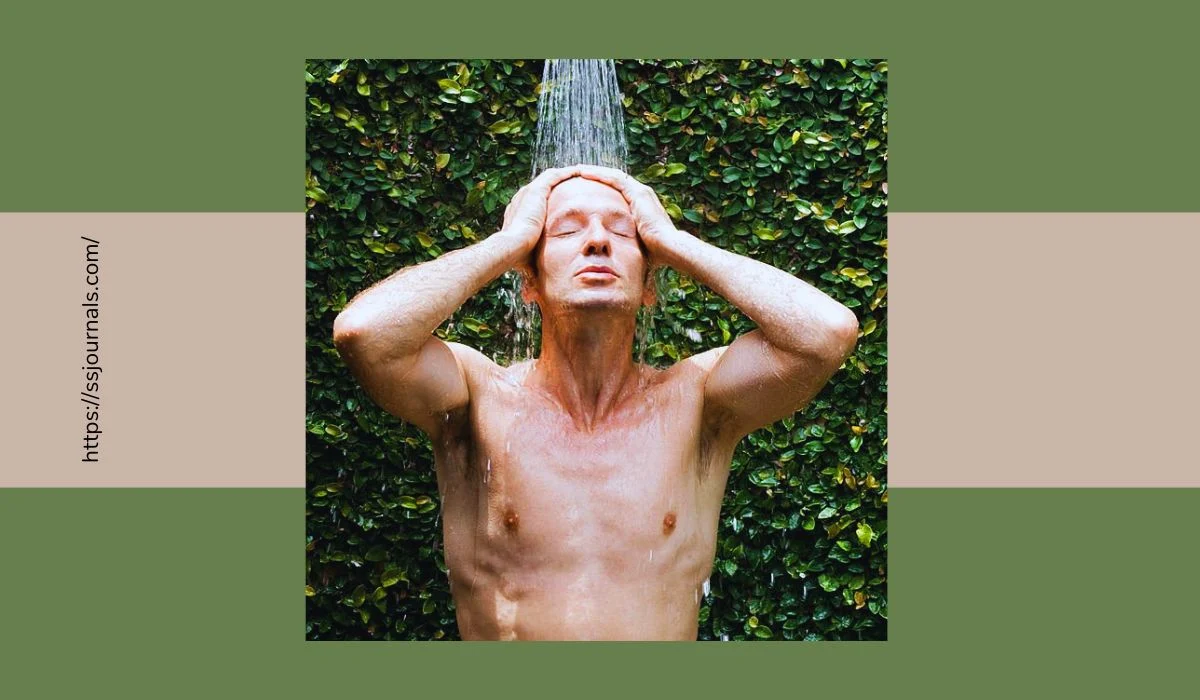Growth hormone, also known as somatotropin, is a vital hormone produced in the pituitary gland that plays an important role in growth and development, especially during childhood and adolescence. It stimulates cell reproduction and regeneration, resulting in growth in bone and muscle mass.
As we age, growth hormone production declines, leading to loss of muscle mass, decreased bone density, and increased body fat. This has led to extensive research on boosting growth hormone levels in the body. One such method that has gained popularity recently is taking cold showers.
Proponents claim that brief exposure to cold water can stimulate the pituitary gland to release growth hormone. In this article, we will analyze the science behind this claim and look at other lifestyle factors that can influence growth hormone levels.
Understanding The Importance Of Growth Hormone
Human growth hormone (HGH) is instrumental in regulating metabolism, body composition, bone and muscle growth, and overall health and vitality. HGH is critical during childhood development but continues to play a vital role throughout life.

In adulthood, maintaining optimal levels of HGH can promote muscle strength, reduce body fat, strengthen bones, enhance exercise performance, and improve skin texture and elasticity. Declining HGH levels as we age correlate strongly with loss of muscle mass, decreased bone density, increased body fat, lowered energy levels, and poorer quality of life.
Boosting natural HGH through lifestyle interventions like diet, exercise, and stress reduction may help counteract age-related hormonal decline. Discussing options with your doctor that may support healthy HGH levels can be an essential part of proactive wellness as we get older.
Do Cold Showers Increase Growth Hormone?
Exposure to cold is known to activate the sympathetic nervous system, triggering the release of stress hormones like norepinephrine and cortisol. Some research indicates that the brief rise in these hormones when exposed to cold temperatures may also stimulate the pituitary gland to secrete human growth hormone (HGH).
However, most studies have looked at whole-body cold exposure like ice baths or cold water immersion rather than cold showers specifically.
One study published in the journal PLoS One found that cold water face immersion stimulated acute HGH release, with HGH levels spiking after 1 minute of contact. Other small trials have observed increased HGH levels after cold water swims.
However, the data is still quite limited, with some studies showing inconsistent results on HGH response to cold exposure. More high-quality clinical studies are needed to conclusively determine if cold showers can boost short-term HGH levels.
It’s also unclear whether a temporary increase in HGH from cold exposure would have any lasting benefits. For those struggling with hormonal deficiencies, targeted HGH therapy under medical supervision would likely be far more effective than taking cold showers.
But for generally healthy adults, brief cold shower-induced HGH spikes may potentially enhance mood, alertness, and recovery from exercise when practiced regularly. As always, it’s best to discuss major lifestyle changes with your healthcare provider.
Other Factors Affecting Growth Hormone
While research on cold showers increasing HGH is still emerging, other lifestyle factors have more robust links to healthy growth hormone levels:
- High-Intensity Exercise: Both aerobic exercise and resistance training can stimulate HGH release, especially when done in short, intense bursts. Sprinting, high-intensity interval training (HIIT), and heavy weightlifting tend to be particularly effective.
- Adequate Sleep: Most HGH is secreted in pulses overnight during deep sleep stages. Lack of quality sleep disrupts growth hormone release. Adults should aim for at least 7-9 hours of sleep per night.
- Low Sugar Intake: Consuming excess sugar and refined carbohydrates can increase insulin levels, which may then blunt HGH release. A diet low in processed sugars is best for optimal HGH.
- Intermittent Fasting: Going an extended time without eating may allow HGH levels to increase significantly. 16- to 24-hour fasting periods show promise for boosting HGH.
- Stress Reduction: Chronic stress raises cortisol, which can inhibit growth hormones. Relaxation techniques like meditation help lower cortisol.
- Supplements: Certain amino acids like arginine and lysine have been shown to increase HGH when consumed in high doses on an empty stomach.
While more research on cold showers is warranted, there are other evidence-based ways to support healthy growth hormone levels through strategic exercise, diet, sleep, and lifestyle factors.
Conclusion
In summary, cold water immersion does appear to stimulate acute spikes in human growth hormone secretion. However, whether brief cold shower exposure would have a similar HGH-boosting effect requires more rigorous scientific investigation.
While short elevations in HGH may potentially offer some biological benefits, lifestyle measures like high-intensity exercise, adequate sleep, intermittent fasting, and stress management might be more impactful for sustainably maintaining healthy growth hormone levels as we age.
For those concerned about hormonal deficiencies, consulting a medical provider about targeted hormone therapies is advised over-relying on unproven home remedies. With careful lifestyle optimization, maintaining a robust quality of life and fitness even as we get older is certainly achievable.
FAQs
A: When practiced carefully, cold showers are generally safe for most healthy adults. However, they may pose risks for people with certain medical conditions like heart disease, Raynaud’s syndrome, or asthma. Check with your doctor before attempting cold exposure.
A: Research has looked at near-freezing to cold tap water temperatures. However optimal temperature thresholds remain unclear. Brief, tolerable cold exposure may provide benefits without being dangerously freezing.
A: Current research indicates cold exposure provides a short-term spike in HGH, not a permanent gain. The transient increase may still have biological effects, but more studies are needed.
A: Some research suggests doing it early morning or during soft exercise for optimal response. However, more studies are required to determine ideal timing and protocols.
A: A few supplements like arginine and lysine may temporarily boost HGH when taken in high doses, but the effects are modest. Consult a doctor before attempting to increase hormones with supplements. Lifestyle measures tend to be safer and more effective.

